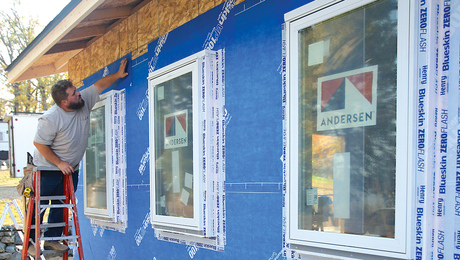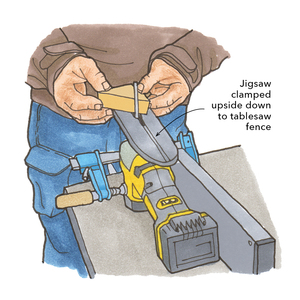
Homebuilders – and their principal advocate in Washington, D.C., the National Association of Home Builders – have complained persistently these past couple of years about the difficulty of obtaining acquisition, development, and construction loans. The complaint is 100% justified. But of course credit, despite historically low rates, has become harder for almost everyone to get, which means consumers with home-buying or refinance ambitions have joined homebuilders in the chorus of frustration.
As we’ve mentioned before, though, the mortgage side of the equation looks to be getting murkier rather than clearer, in large part because the ongoing debate about how to deal with Fannie Mae and Freddie Mac, the two big, government-sponsored enterprises that guarantee most mortgages, is, well, very much ongoing. Even though partisan calls on Capitol Hill for elimination and/or complete privatization of both agencies resonate with many folks, the reality is that implementing policies along those lines would be enormously complicated and, as some observers note, potentially calamitous, with the market for residential mortgage-backed securities hobbled as federal-government backing for loan purchases disappears.
Untying the public-private knot – or not
This issue has been generating a growing, often dissonant buzz on the Internet, particularly because the Treasury Department is preparing to roll out a white paper that outlines several possible approaches to the Fannie/Freddie quandary. Meanwhile, private-sector experts are pitching ideas against the wall to see what sticks.
One advance peak at Treasury’s proposals would have the government cutting support for the mortgage market to below 50%, according to news reports published this week. That likely would mean borrowers would pay higher loan-guarantee fees, which, as CNBC Realty Check columnist Diana Olick points out, could make private-label residential mortgage-backed securities cheaper. Problem is, a lot of those borrowers likely would flock to the Federal Housing Administration, which is exempt from imposing many of the rigorous lending standards required by the Dodd-Frank bill. That’s not an entirely welcome possibility, especially since the FHA’s share of the market ballooned wildly during the credit crunch, leaving the agency seriously oversubscribed, or as one observer put it, “too big.”
To add fizz to the discussion, Moody’s Analytics’ chief economist, Mark Zandi, this week released a proposal for a segue from Fannie and Freddie to a public-private hybrid that would feature 5 to 10 privately owned “mortgage bond insurance companies” that would be chartered by the federal government to buy loans from banks and issue mortgage-backed securities guaranteed by the government. Mortgage bond insurance companies would buy the loans and, in compliance with a uniform set of legal standards, bundle them into securities. The bond insurance companies would be required to keep enough capital on hand to weather a 25% drop in housing prices.
The anticipated results? Mortgage rates about 0.3% higher than they were before the mortgage crisis hit, an 8% gain in median home prices, a 1% increase in homeownership, and about 375,000 more home sales annually.
CNBC’s NetNet columnist, Jack Carney, calls Zandi’s plan “wacky,” in part because it not only would markedly increase home prices but also, he says, because the 25% capitalization requirement would eventually be eroded by “political pressure to back loans to politically favored segments of the population in exchange for looser regulation.”
Suffice to say the Fannie-Freddie debate is only going to get more heated.
Bottom line: as absolutely critical as it is for homebuilders to find their way to AD&C credit, it is just as important – and challenging – to strike the right balance between mortgage rates, loan guarantees, and a reasonable set of standards for homebuilders’ prospective customers. Or that pool of customers might not expand as much as we’d like.
Fine Homebuilding Recommended Products
Fine Homebuilding receives a commission for items purchased through links on this site, including Amazon Associates and other affiliate advertising programs.

Reliable Crimp Connectors

Affordable IR Camera

Handy Heat Gun



























View Comments
F&F are bankrupt. All we can do is to shield the taxpayer as well as we can from the losses that have been hidden up till now. One way is to dissolve both GSE's and make sure taxpayers are not held responsible. Contrary to popular belief, the US gov (taxpayer) does NOT guarantee the mortgages that F$F packaged up.
Once all those MBS's are market to market..... look out.
I think we should be asking ourselves what will happen to the housing market once interests rates rise. Inflation is coming because of all our cheap credit over the past decade and now there are those that think we need to keep it going.
Inflation = higher interest rates.
Higher interest rates = lower home prices.
Unfortunately this will take several generations before it works itself out.